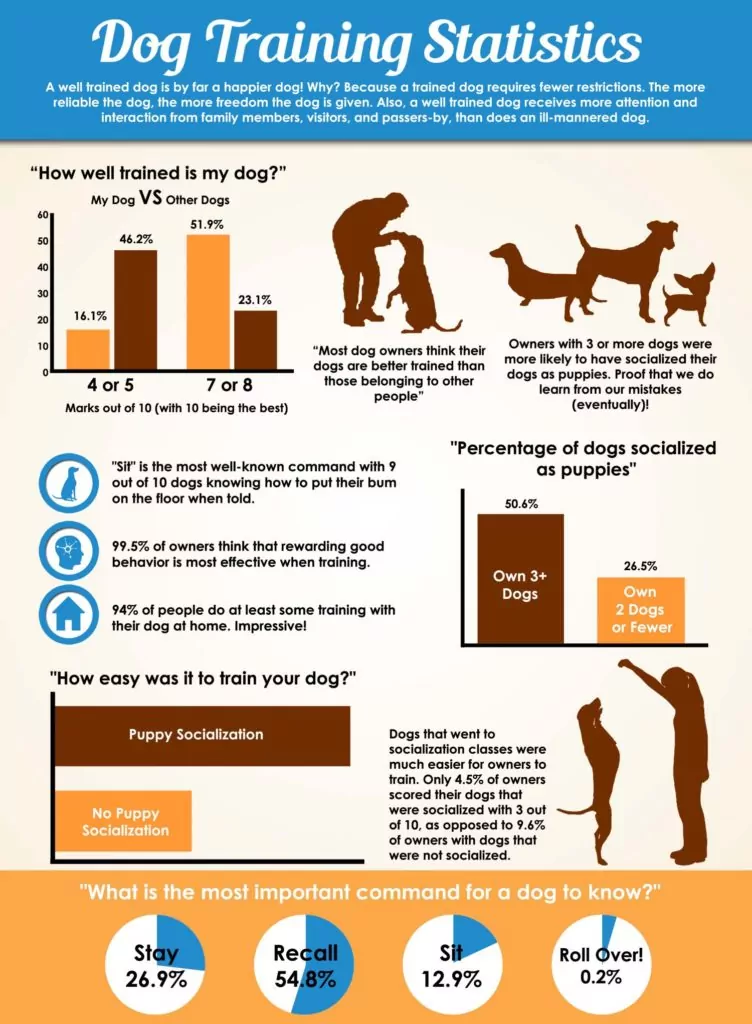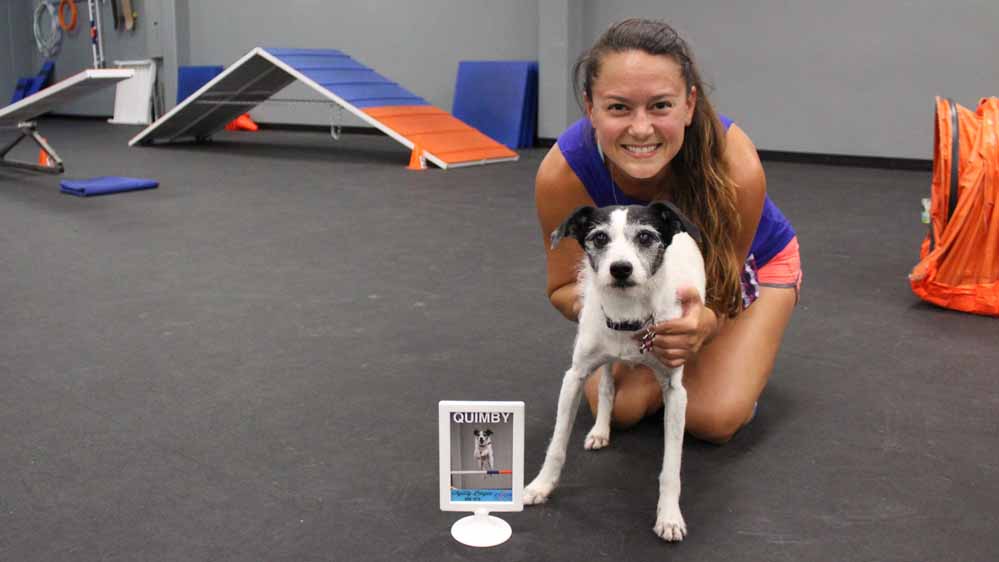Top Dog Training Methods for each Stage of Your Pet Dog's Life
Effective canine training is essential at every phase of a canine's life, as each phase offers distinct difficulties and possibilities for growth. It is crucial to acknowledge that training needs to progress alongside a pet dog's advancement, ensuring that techniques continue to be appropriate and efficient.
Pup Training Fundamentals
Puppy training fundamentals prepared for a well-behaved grown-up dog and entail numerous key components that must not be forgotten. The first phase of training concentrates on establishing a strong bond between the young puppy and its owner, which is crucial for reliable communication. Socializing is critical; exposing puppies to numerous environments, individuals, and other pets helps them establish confidence and versatility, reducing the possibility of behavioral concerns later on in life.
Basic commands, such as sit, stay, and come, form the foundation of obedience training. Making use of favorable reinforcement strategies, such as deals with and appreciation, encourages wanted behaviors and fosters a positive learning experience. Uniformity in commands and training sessions is crucial, as puppies flourish on regular and framework.
Additionally, residence training is a necessary element of young puppy training. Establishing a normal schedule for bathroom breaks and making use of assigned locations can help lessen crashes and promote excellent practices. Generally, an all-round method to puppy training, integrating residence, socializing, and obedience training, sets the stage for a well-adjusted adult canine, making sure a harmonious partnership in between the family pet and its owner.
Adolescent Actions Management
As puppies mature into teens, their habits can transform considerably, usually presenting new challenges for owners. This developing phase, typically happening in between 6 months and 2 years, is noted by enhanced power levels, interest, and an expanding feeling of independence. Recognizing these adjustments is critical for reliable actions administration.
Teens may show rebellious propensities, such as overlooking commands they formerly understood or participating in harmful habits. Consistency in training remains extremely important; reinforcing found out actions via favorable support can assist combat these challenges. Brief, interesting training sessions are important to keep their passion and focus.

Furthermore, establishing an organized regimen can significantly enhance an adolescent dog's sense of protection. Normal workout is vital to direct their power favorably, reducing the likelihood of undesirable actions. By utilizing these techniques, proprietors can properly browse the intricacies of adolescent actions, cultivating a well-adjusted, satisfied canine buddy.
Adult Canine Obedience Strategies

Positive support continues to be an essential technique; gratifying etiquette with treats, appreciation, or playtime urges compliance. Uniformity is important; the same commands and benefits need to be used by all family members to stay clear of complication.
Integrating training right into daily regimens can additionally work. For instance, method commands throughout walks or meal times, enabling training to blend flawlessly into everyday life. Taking part in organized tasks, like more dexterity programs or obedience classes, can additionally improve a pet dog's abilities while offering useful socialization chances.
It is essential to identify that grown-up pets may also exhibit stubbornness or complacency. Readjusting training strategies to keep their passion, such as varying rewards or introducing new commands, can assist suffer motivation. Overall, a recurring commitment to obedience training will cultivate a well balanced and well-behaved grown-up pet dog.
Senior Dog Adjustment Techniques
Identifying the distinct requirements of senior pets is vital for guaranteeing their comfort and well-being. As pet dogs age, they may experience a decrease in flexibility, vision, and cognitive function, necessitating tailored adaptation approaches.
First, take into consideration customizing the living environment. Make certain that the home is safe and available; get rid of barriers and provide non-slip surface areas to stop drops. Furthermore, think about using ramps or actions to assist them access their preferred spaces.
Second of all, workout ought to be check my blog gotten used to make up reduced endurance and joint health (Dog Training For Dogs). Involve in shorter, a lot more regular strolls, and incorporate gentle tasks like swimming, which can be advantageous for arthritic joints
Additionally, psychological stimulation stays essential. Usage easy problem playthings or participate in scent job to maintain their minds sharp, while preventing frustrating jobs that may annoy look at this now them.
Last but not least, regular veterinary check-ups are essential to monitor health changes and adjust care regimens accordingly. By executing these adaptation methods, you can improve the top quality of life for your senior canine, ensuring they age gracefully and easily.
Lifelong Discovering and Enrichment
While pets of every ages take advantage of discovering and mental stimulation, lifelong enrichment is particularly important for preserving cognitive health and emotional health in both elderly and younger canines. Engaging activities not just enhance a pet dog's lifestyle but additionally enhance the bond between the dog and its owner.
Enrichment can take numerous types, including interactive toys, challenge feeders, and fragrance work, which stimulate a pet's senses and encourage analytical. Regular training sessions, including brand-new commands or tricks, keeps their minds sharp and promotes a sense of achievement. Socialization with various other canines and people is equally essential, as it assists avoid behavioral issues and promotes adaptability.
In addition, integrating physical exercise right into a pet's regimen is essential for total health. Activities like dexterity training, fetch, or long walks give both psychological and physical excitement, making sure pets remain satisfied and involved.
Finally, consider varying the setting by introducing new places for playdates or walks. This adjustment can reignite a dog's interest and interest for exploration. Lifelong understanding and enrichment not just add to a meeting life but additionally promote an unified relationship with your canine buddy.
Verdict
Reliable canine training strategies advance throughout a pet's life, addressing the unique needs of each developing phase. Stressing normal psychological excitement, socializing, and physical workout fosters a well balanced and meeting life for pets.
Reliable pet training is vital at every stage of a dog's life, as each phase presents unique challenges and possibilities for development.Puppy training essentials lay the groundwork for a mannerly grown-up canine and involve numerous vital parts that must not be ignored. Generally, an all-round strategy to puppy training, integrating socialization, obedience, and house training, sets the phase for a well-adjusted grown-up pet, ensuring an unified connection between the family pet and its owner.
Lots of pet dog owners might find that grown-up pets, while usually more secure in habits than their teenage equivalents, still call for constant training to keep obedience and great manners.Reliable canine training strategies progress throughout a dog's life, resolving the distinct demands of each developmental phase.